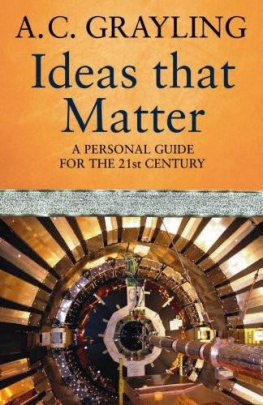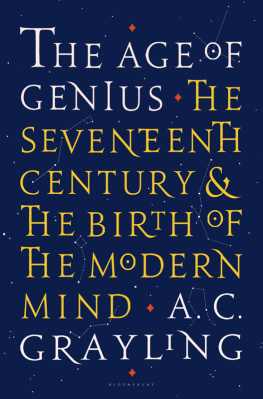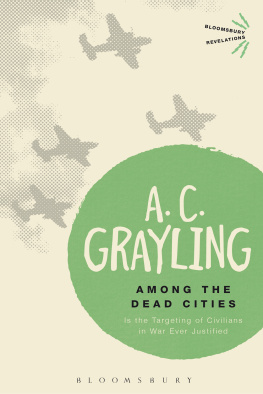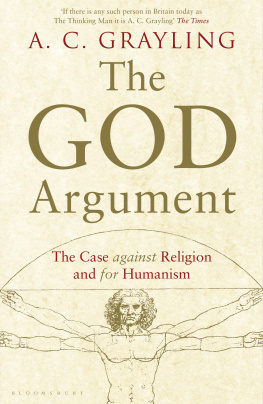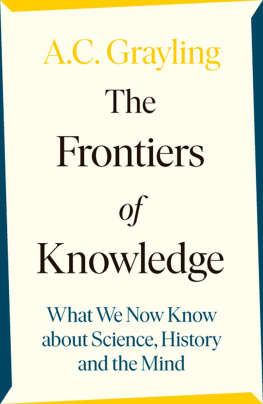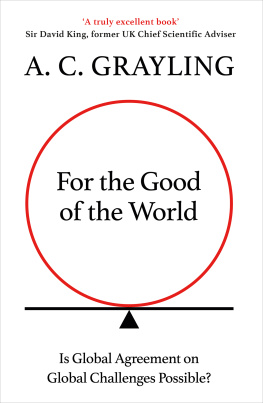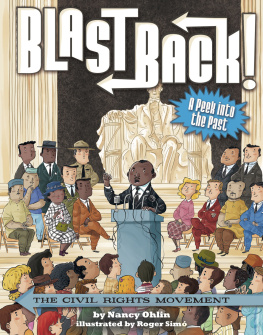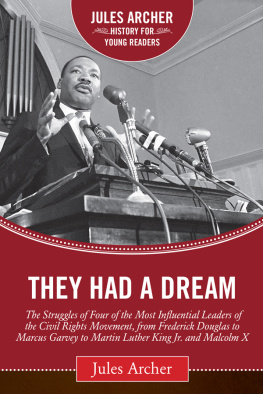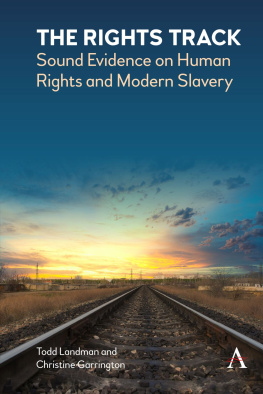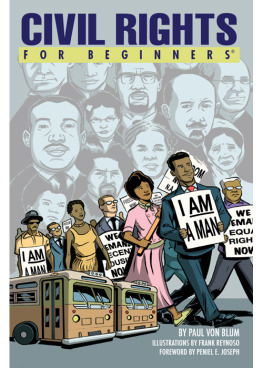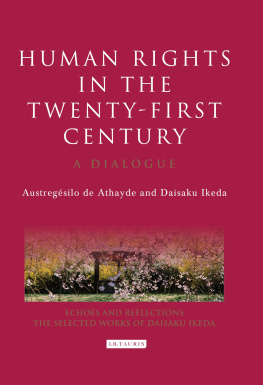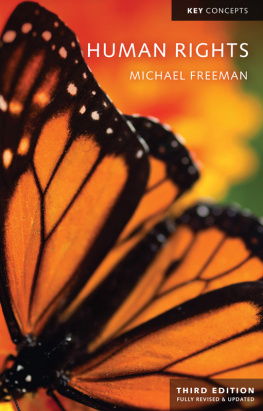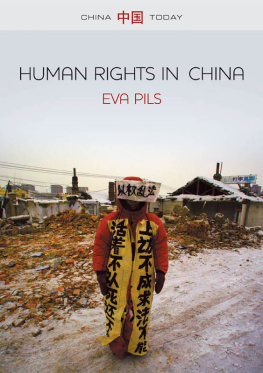For Katie and Maddie
Praise for Towards the Light
Graylings theme in this lucid book is the history of the liberal idea of political order Graylings book extols some of the intellectual heroes in this struggle
Sunday Times
This is an important book, packed with insight. It makes crucial points about the state of the human race at the beginning of the 21st century and considers how precarious our civil liberties are in the face of so-called democratic governments
Sunday Post
Brilliant and indispensable
Sydney Herald
Do we take our liberties for granted at the risk of losing them in the war on terror? Grayling believes so. This book serves as a stirring call to arms to defend freedom from its enemies within and without Grayling provides a refreshing tonic to any inclination toward apathy or cynicism, and his book will only gain in relevance as the 2008 presidential election looms
Publishers Weekly
A powerful recapitulation of how far the West advanced in the battle to gain liberty and rights and a sobering reminder of how much we stand to lose if the forces of darkness win in their unceasing campaign to take them away The Age
Grayling has written an excellent survey that tracks the development of free, democratic societies and institutions over the past five centuries Importantly, he reminds us that the liberty we too often take for granted is the result of a long, often painful process
Booklist
The even-handed tone of philosophy professor A.C. Graylings latest book does not lessen the intensity of its polemical content in describing the human cost of each victory over these forces, Grayling underlines the seriousness of todays threats to our liberties from excessive anti-terrorism measures, which he warns could be a permanent and unacceptable loss of those hard-won freedoms
Metro
TOWARDS THE LIGHT
The Story of the Struggles
for Liberty and Rights
that Made the Modern West
A. C. Grayling

Liberty, next to religion has been the motive of good deeds and the common pretext of crime, from the sowing of the seed at Athens, 2,460 years ago, until the ripened harvest was gathered by men of our race. It is the delicate fruit of a mature civilization; and scarcely a century has passed since nations, that knew the meaning of the term, resolved to be free. In every age its progress has been beset by its natural enemies, by ignorance and superstition, by lust of conquest and by love of ease, by the strong mans craving for power, and the poor mans craving for food. During long intervals it has been utterly arrested, when nations were being rescued from barbarism and from the grasp of strangers, and when the perpetual struggle for existence, depriving men of all interest and understanding in politics, has made them eager to sell their birthright for a pottage, and ignorant of the treasure they resigned. At all times sincere friends of freedom have been rare, and its triumphs have been due to minorities, that have prevailed by associating themselves with auxiliaries whose objects often differed from their own; and this association, which is always dangerous, has been sometimes disastrous, by giving to opponents just ground of opposition, and by kindling dispute over the spoils in the hour of success. No obstacle has been so constant, or so difficult to overcome as uncertainty and confusion touching the nature of true liberty. If hostile interests have wrought much injury, false ideas have wrought still more; and its advance is recorded in the increase of knowledge as much as in the improvement of laws.
The History of Freedom in Antiquity, Lord Acton
An address delivered to the members of the
Bridgnorth Institute, 26 February 1877
Contents
1
Setting the Scene
At the dawn of the twenty-first century most people in the Western liberal democracies of Europe, North America and Australasia could reflect with satisfaction on at least one thing: that the history of their civilisation in the preceding five centuries had been such that ordinary citizens, men and women alike, have reached a position which at the beginning of that period was attainable by only a tiny minority of people: namely, aristocrats and senior clergy. In the year 1500 education, wealth, participation in political processes, the freedom and wherewithal to travel, and other opportunities and capacities which todays average Westerner takes for granted, were reserved to these few. By this measure alone one could justify what is sometimes called a Whig view of the history of the modern West, namely, that it displays progress indeed, remarkable progress: a transformation for the better in the life of the common man. Add the many achievements of science, benign technology and medicine, and the justification for taking such a view increases.
And even when people cite major setbacks such as the rise of totalitarian regimes in the twentieth century, responsible for frightful atrocities and terrible war one can remain Whiggish by pointing out that the rest of the world, and principally the Western world, would not accept those regimes, and therefore opposed and defeated them in the space of seventeen years in the case of Nazism, and seventy years in the case of Soviet Communism.
Still, it does not do to get carried quite away by these thoughts. As the light of modern times grew stronger in Europe and the world it conquered from the sixteenth century onwards, so some of the shadows it cast grew deeper. The many negative aspects of colonialism and exploitation of the peoples and resources arrogated by European expansion constitute an ineradicable stain, despite the positive aspects that partially attended. Even as science and secularism grew, so the reaction to them at times waxed violent: the worst war in European history before the twentieth century the seventeenth centurys Thirty Years War was a struggle of religion, capping nearly a century of religious struggles, in which the old ecclesiastical order fought to regain what it had lost to a diversity of new ones.
Grant the negatives and the shadows: it remains true that todays ordinary Western citizen is, in sixteenth-century terms, a lord: a possessor of rights, entitlements, opportunities and resources that only an aristocrat of that earlier period could hope for. This is the result of a singular process: the diffusion of what one might call enfranchisement. It consists in the increasing liberty of the individual, the growth of the idea that individuals have rights and claims, and that they can assert them even against the constituted authority of the land. In todays West a set of values is taken to constitute what a liberal democratic polity is, though in hard fact not all of these values are fully realised. Nevertheless they serve as defining aspirations. At the minimum they include individual liberty, privacy, free speech, due process of law and equality before the law, representative and transparent government, and a regime of equal rights and entitlements for all. In practical terms this is meant to imply such things as equality between the sexes, no discrimination on grounds of race or age, the vote for all adults, remedies for breach of rights, freedom of choice and action across a wide range of interests including whom to marry, whether to have children, where to live, whether to travel abroad or emigrate, and much more. They also involve the distribution of social goods such as education and health care, though in different liberal polities there is a broad range of opinion between those who think these goods should be justly distributed from a commonly financed pool, and those who think that it is the responsibility of individuals to provide them for themselves and their families. These are arguments about means: the principles and ends are the shared context of debate.
Next page

